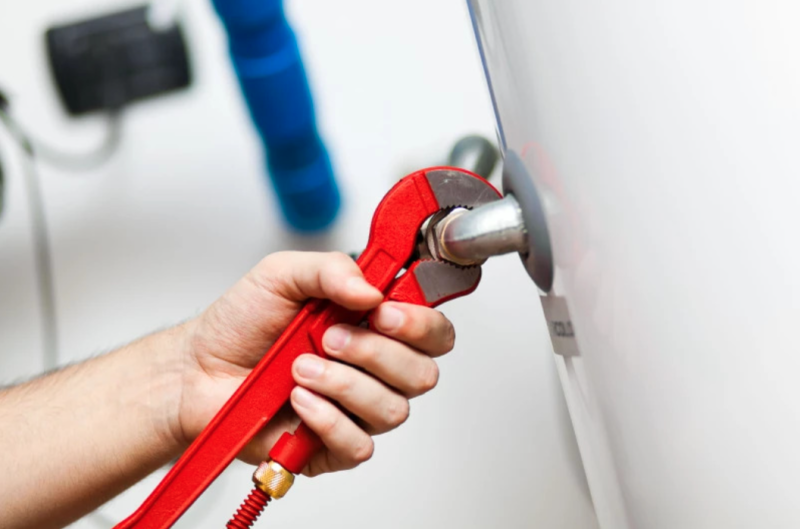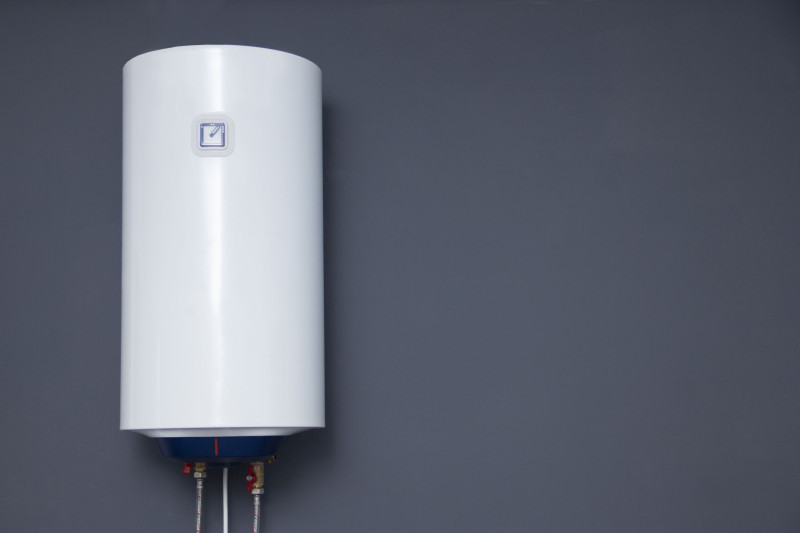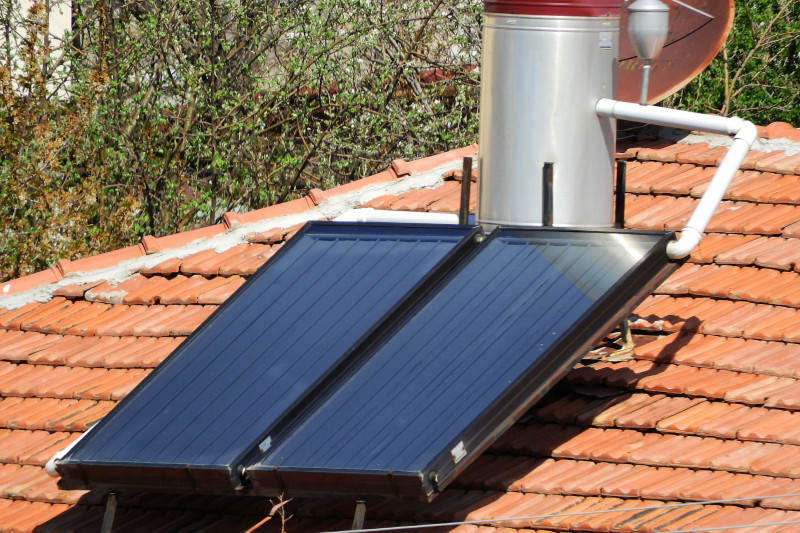If you’re looking for an energy-efficient alternative to traditional water heaters, a heat pump hot water system might be the answer. These clever systems use existing thermal energy in the air or ground to heat water, cutting down on your energy bills, your carbon footprint, and your reliance on electric resistance heating.
In this guide, we’ll explain how heat pumps work, their benefits, and what to look for when choosing one for your home.
What is a Heat Pump Hot Water System?
A heat pump hot water system is a super-efficient way to heat your water using the latest technology. Instead of generating heat itself, a heat pump water system extracts thermal energy from the air and transfers it to your hot water tank. It’s like a reverse cycle air conditioner, but instead of heating your home, it heats your water.
The Technology Behind It
At the heart of the system is a heat exchanger and a refrigerant loop. The air source heat pump draws in outside air even in cool temperatures, and the refrigerant absorbs the heat. This heat is then compressed to raise the temperature before it’s transferred to your water tank. It uses far less electricity than traditional electric resistance heating, which burns power to create heat from scratch.
Eco-Friendly and Cost-Saving
While traditional systems may have lower upfront costs, they’re often more expensive to run over time. That’s where a heat pump system stands out. Many Perth homeowners notice significantly lower energy bills, especially when paired with solar panels over the long term.
Heat pumps use renewable thermal energy from the air or ground, and produce fewer greenhouse gas emissions. They don’t burn gas or rely on dirty energy sources, making them a smart choice for households looking to reduce their environmental impact.
The Benefits of Heat Pump Hot Water Systems
So, what are the actual benefits of heat pump hot water systems? Here’s what you can expect
1. Save Money on Energy Bills
A heat pump system significantly reduces electricity usage by extracting heat from the surrounding air or underground, saving you hundreds of dollars annually on energy costs. It’s an excellent solution for both residential and commercial use.
2. Lower Operating Costs Over Time
Although there’s a higher upfront cost, these systems are built for efficiency. Over time, the lower operating costs quickly make up for the investment. There are also government rebates and incentives. Contact our team for more information!
3. Environmentally Friendly
Heat pump installation can significantly lower your household’s carbon footprint by cutting down your electricity use and reducing reliance on fossil fuels. It’s a great way to support better air quality and address environmental concerns.
4. Eligible for Rebates and Tax Credits
Tax incentives and rebates like STCs (Small-scale Technology Certificates) can offset the initial price, making this energy-efficient alternative even more affordable. We’ll help you find out what you’re eligible for in Perth
5. Reliable in Different Conditions
Modern air source heat pumps and cold climate heat pumps are designed to perform well year-round, even when temperatures drop. If properly maintained, they’re just as dependable as traditional water heaters
6. Pair with Solar for Maximum Efficiency
Already got solar panels on your roof? Combine your heat pump water heater with solar power to reduce your reliance on the grid even further. It’s a win for your wallet and the planet.
7. Dual Use: Heating and Cooling
Some advanced systems can assist with heating and cooling your home, working like an air conditioner in reverse. This makes them an excellent option for larger households or new builds wanting all-in-one efficiency.
Are There Any Drawbacks?
If you’re thinking about installing a heat pump water system, here are a few things to consider:
- High Upfront Cost: Heat pump water systems generally have a higher purchase and installation cost. However, available rebates and the potential for lower operating costs can help offset this initial investment.
- Best in Specific Climates: While cold-climate heat pumps are available, extremely low temperatures can affect their performance unless paired with backup power.
Choosing the Right Heat Pump Hot Water System
Finding the right heat pump system depends on your home and lifestyle. Consider:
- Home Size and Usage: Bigger households need larger systems to meet demand. If you’re unsure, contact our team to find out what size hot water system you will need!
- Climate: Perth is ideal for air source heat pumps, but colder regions may need a boosted or cold climate model for optimal performance.
- System Type: Choose between air source, ground source, or hybrid depending on your property and energy goals.
- Solar Compatibility: If you have solar panels, a heat pump can reduce or eliminate your energy bills.
- Warranty and Energy Ratings: Look for strong warranties and high Energy Star ratings to ensure performance and rebates.
Not sure where to start? Swans Professional Plumbing can help you choose and install the right system for your home.
Why Choose Swans Professional Plumbing?
With over 50 years of combined experience, Swans Professional Plumbing knows how to get the job done right.
- Local Perth plumbers who understand our climate
- Experience with all major heat pump brands
- Focus on energy efficiency, rebates, and long-term savings
- Honest advice and no-fuss service
Whether you’re replacing an old unit or building from scratch, we’ll make sure your heat pump installation is stress-free and built to last.
Heat Pump Hot Water System FAQs
A heat pump hot water system uses thermal energy from the air or ground to heat water efficiently, offering a lower-cost, eco-friendly alternative to traditional systems.
It uses a heat exchanger to absorb warmth from the air (or ground), then transfers that heat to your water tank using a refrigerant loop.
Prices vary depending on size, brand, and setup. Rebates and tax credits can reduce this significantly. For more information, contact our friendly team!
Yes. Households typically notice a drop in their energy bills due to much lower operating costs compared to electric or gas systems.
If you're after long-term savings, reduced environmental impact, and better energy efficiency, it's definitely worth considering, especially with available rebates.



